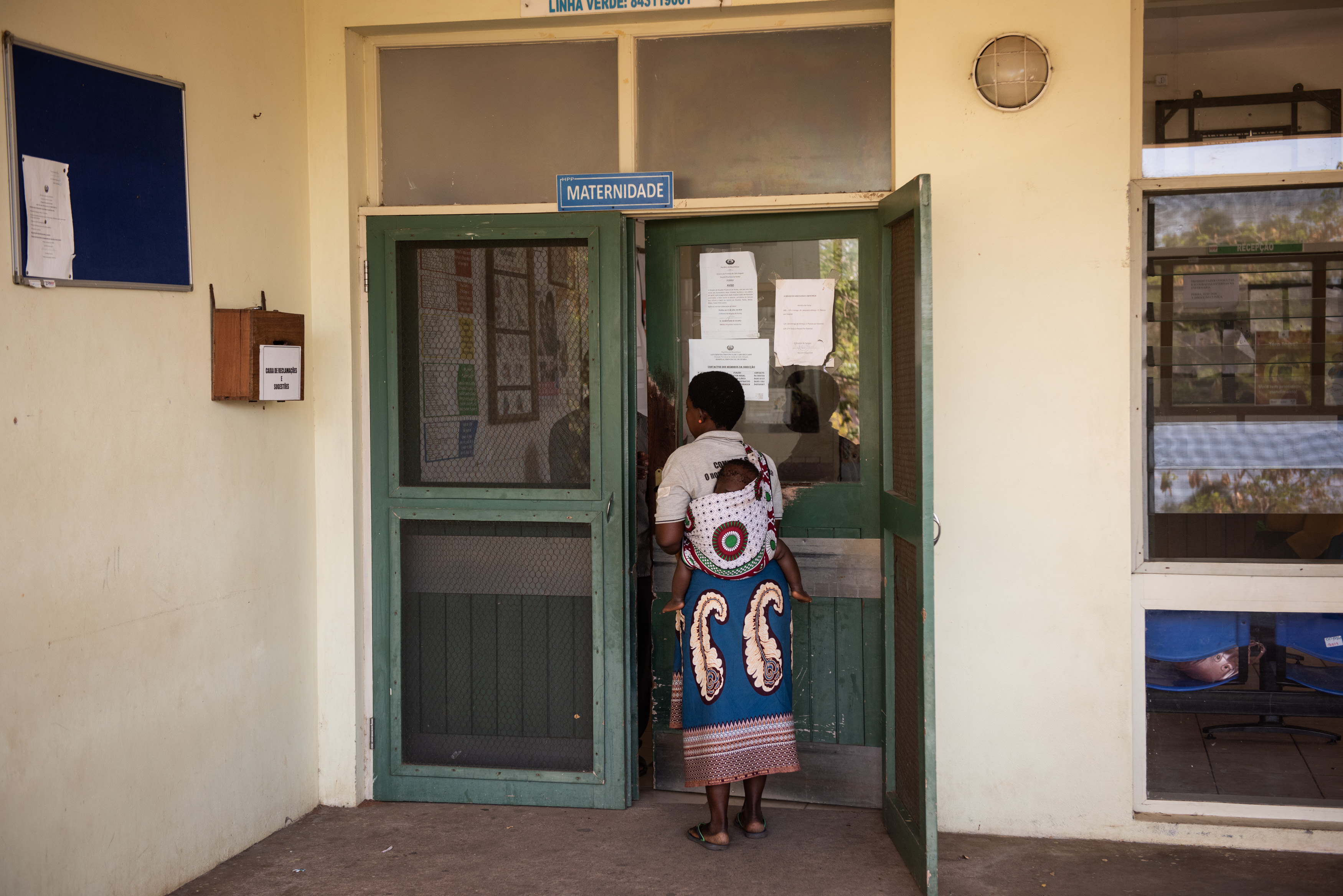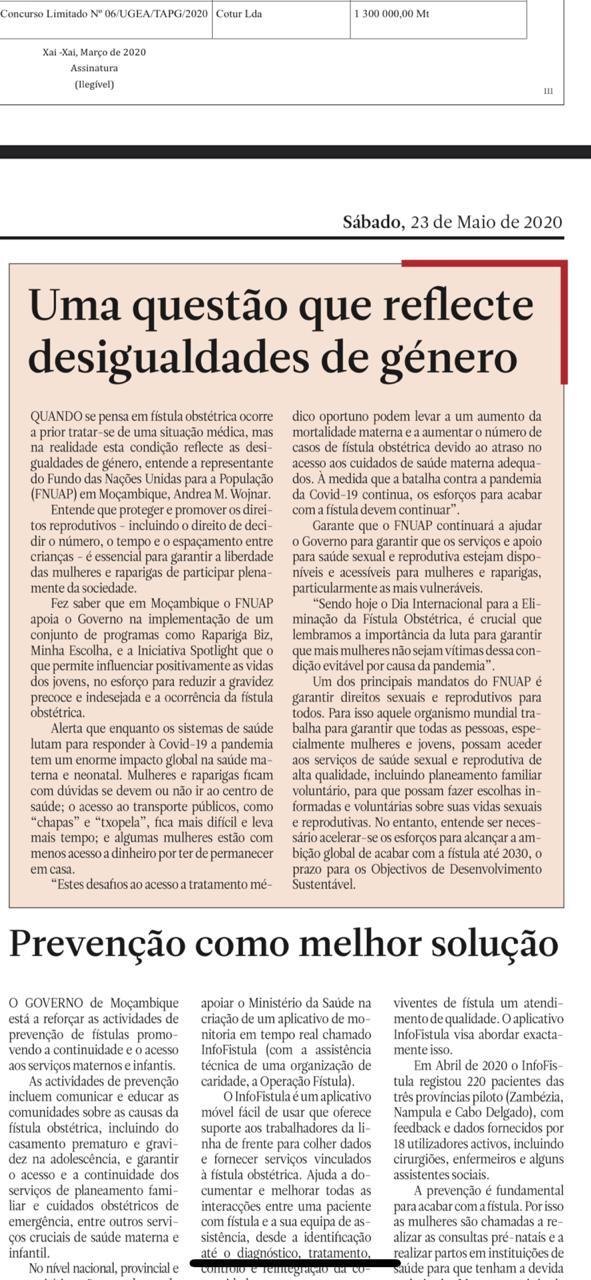An issue that reflects gender inequalities (unofficial translation from Portuguese)
This article first appeared in Jornal Noticias
When we think of obstetric fistula, we think of it as a medical issue, but in reality, this is a reflection of gender inequality, explains the Resident Representative of the United Nations Population Fund (UNFPA) in Mozambique, Ms. Andrea M. Wojnar.
Ms. Wojnar believes that protecting and promoting reproductive rights - including the right to decide the number, time and spacing between children - is essential in order to guarantee the freedom of women and girls to participate fully in society.
In Mozambique, UNFPA supports the Government by implementing programming, such as Rapariga Biz, My Choice, and the Spotlight Initiative that positively influences the lives of young people in the effort to reduce early and unwanted pregnancies, and the occurrence of obstetric fistula.
Ms. Wojnar warns that while health systems struggle to respond to COVID-19, the pandemic has had a huge global impact on maternal and newborn health. Women and girls are unsure whether or not to go to a health center; access to public transport, such as chapas e chopelas, is more difficult and takes more time; and some women have less access to money because they have to stay at home.

“The challenges in accessing timely medical treatment can lead to an increase in maternal mortality and an increase in the number of cases of obstetric fistula due to the delay in accessing adequate maternal health care. As the battle against the covid-19 pandemic continues, efforts to end fistula must continue.”
UNFPA will continue to support the Government to ensure that sexual and reproductive health services and support are available and accessible to women and girls, particularly the most vulnerable.
"Marking the International Day for the Elimination of Obstetric Fistula, it is crucial that we remember the importance of the issues and challenges in order to ensure that more women are not victims of this preventable condition as a result of the pandemic.”
One of UNFPA’s main objectives is to guarantee sexual and reproductive rights for all. To that end, that global organization works to ensure that everyone, especially women and young people, can access quality sexual and reproductive health services, including voluntary family planning, so that they can make informed decisions about their sexual and reproductive lives.
However, Ms. Wojnar believes it is necessary to accelerate efforts to achieve the global goal to end fistula by 2030, the deadline for the Sustainable Development Goals.


